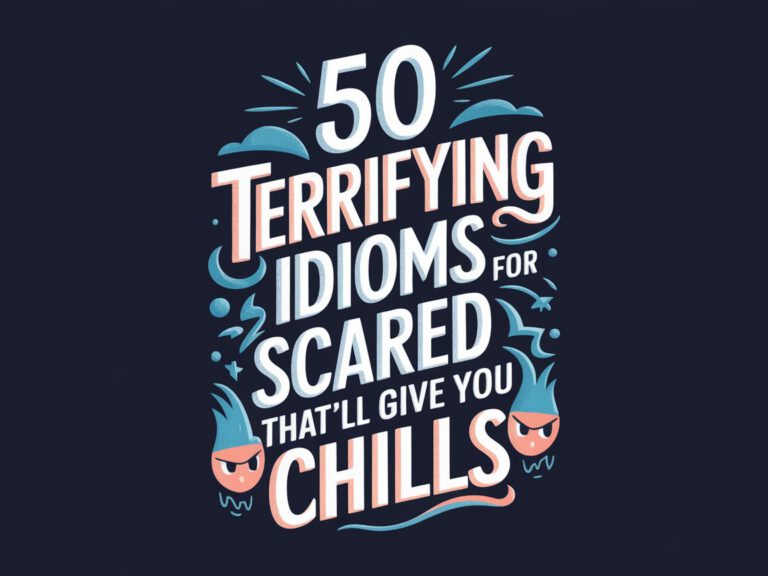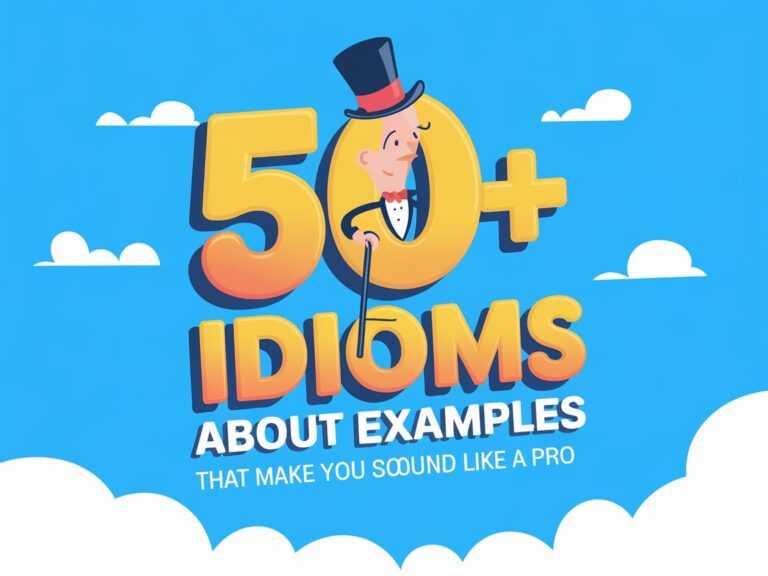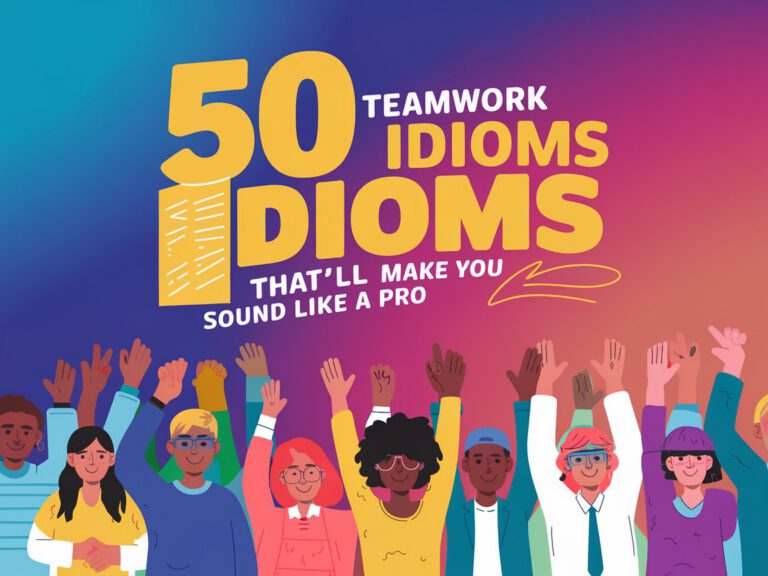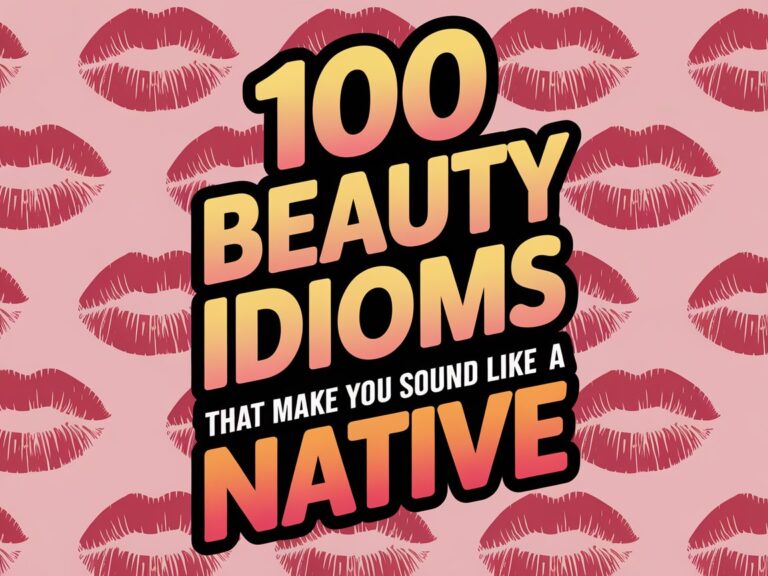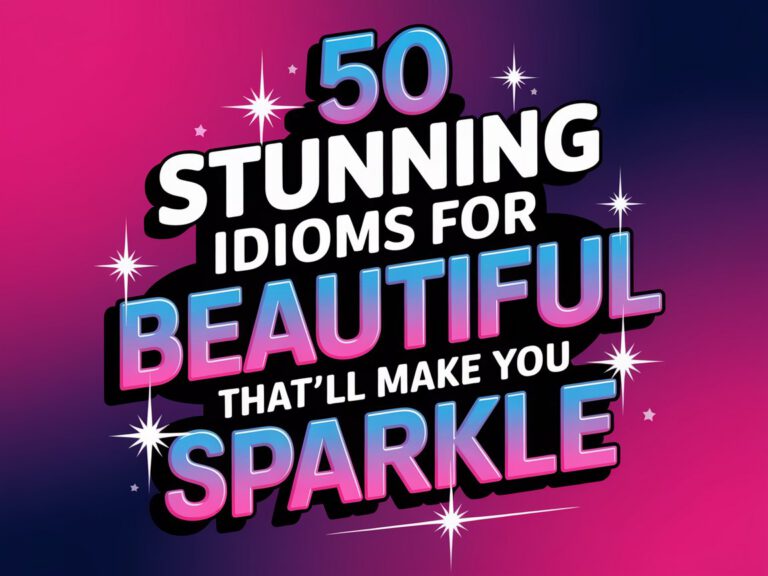🔥 50 Blazing Fire Idioms That’ll Set Your English on Fire
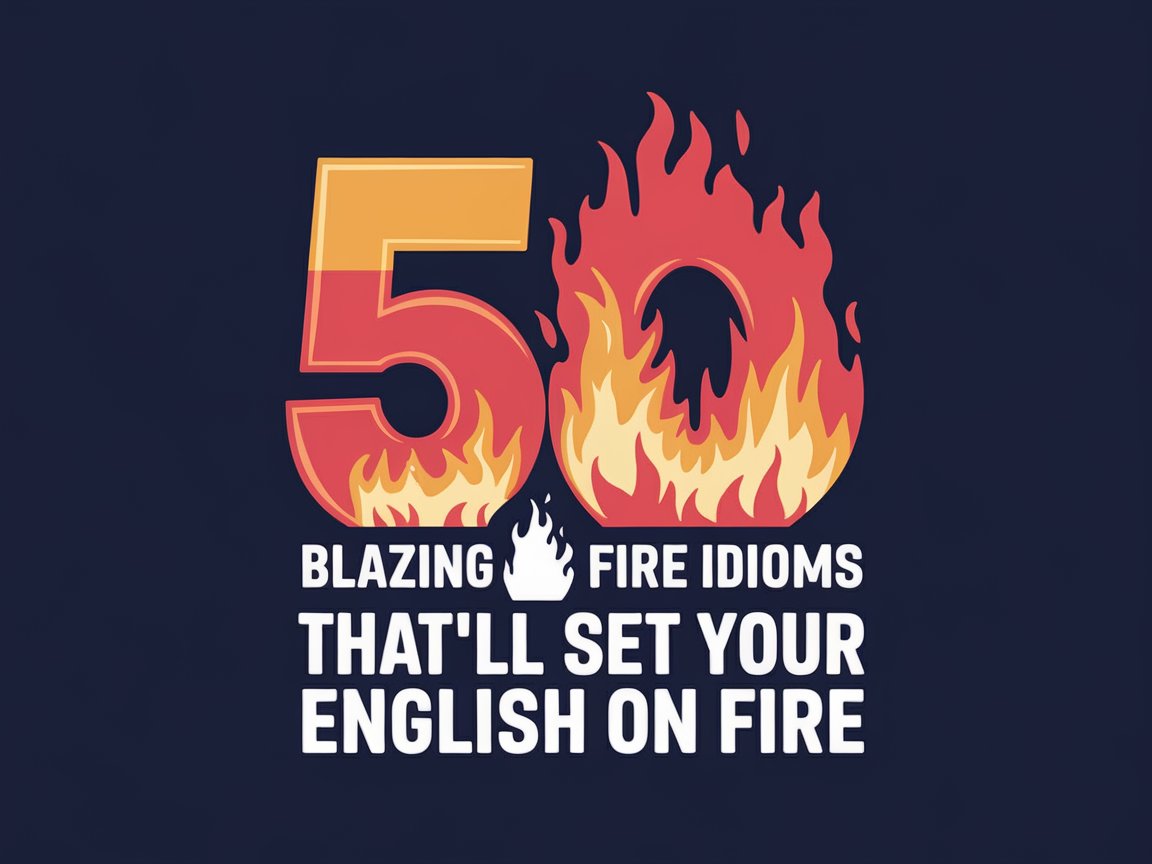
Fire has captivated humans since the dawn of civilization. It’s our oldest companion, our greatest tool, and our most feared force. So it’s no wonder that fire has ignited countless idioms and expressions in the English language. These fiery phrases don’t just describe literal flames—they capture the intensity of human emotions, the heat of passion, and the spark of inspiration.
The Linguistic Power of Fire
According to research from the Cambridge Dictionary, fire-related idioms appear in over 25,000 documented expressions across various English dialects. Dr. Sarah Mitchell, a linguist at Oxford University, notes: “Fire idioms are among the most emotionally charged expressions in English. They tap into our primal understanding of fire as both creator and destroyer, making them incredibly powerful tools for communication.”
| Fire Idiom Category | Emotional Impact | Common Usage | Origin Period |
|---|---|---|---|
| Passion & Energy | High | Daily conversation | Medieval times |
| Anger & Conflict | Very High | Heated discussions | Ancient origins |
| Success & Achievement | Medium-High | Professional settings | Modern era |
| Danger & Risk | High | Warnings & advice | Historical |
| Exhaustion & Burnout | Medium | Work environments | Industrial age |
50 Fire Idioms That Pack Heat
Energy & Passion Idioms
1. On Fire When someone’s “on fire,” they’re absolutely killing it! This idiom describes peak performance, whether you’re crushing it at work, dominating in sports, or just having an incredible day.
“Sarah’s presentation was on fire—she landed three new clients!”
Pro-Tip: Use this when you want to highlight someone’s exceptional performance without sounding too formal.
2. Fire in the Belly This powerful expression describes that burning desire to succeed. It’s that inner flame that keeps you going when everything else says quit.
“You can see the fire in his belly when he talks about his startup dreams.”
3. Fired Up Getting fired up means you’re pumped, energized, and ready to tackle whatever comes your way. It’s like having rocket fuel in your veins.
“The team was fired up after that motivational speech.”
4. Ball of Fire Some people are just unstoppable forces of nature. A “ball of fire” is someone who brings incredible energy to everything they do.
“My grandmother is 85 and still a ball of fire—she runs marathons!”
5. Spark a Fire To spark a fire means to ignite passion or inspiration in someone. It’s about lighting that initial flame that grows into something bigger.
“Her teacher sparked a fire for learning that changed her life.”
6. Burn with Passion When you burn with passion, you feel something so deeply that it consumes you in the best possible way.
“He burns with passion for environmental conservation.”
7. Light a Fire Under Someone Sometimes people need a gentle push (or not so gentle). This idiom means motivating someone to get moving.
“The deadline lit a fire under me to finish the project.”
8. Catch Fire Ideas, trends, or movements that catch fire spread rapidly and gain momentum. Think viral content or breakthrough innovations.
“The social media campaign caught fire overnight.”
Conflict & Anger Idioms
9. Add Fuel to the Fire One of the most common fire idioms, this means making a bad situation worse. It’s like pouring gasoline on flames.
“Arguing with your boss right now will only add fuel to the fire.”
10. Fan the Flames Similar to adding fuel, but this focuses on intensifying emotions or conflicts that are already burning.
“The media coverage fanned the flames of public outrage.”
11. Fight Fire with Fire Sometimes you need to match intensity with intensity. This idiom means responding to aggression with similar force.
“When competitors started a price war, we fought fire with fire.”
12. Under Fire Being under fire means facing criticism, attack, or intense scrutiny. It’s like being in a battlefield of words.
“The CEO came under fire after the scandal broke.”
13. Playing with Fire This warns about taking dangerous risks that could backfire spectacularly. It’s about flirting with disaster.
“Lying to investors is like playing with fire—you’ll get burned.”
14. Where There’s Smoke, There’s Fire This age-old wisdom suggests that rumors usually have some basis in truth. Suspicion often indicates real problems.
“The gossip about layoffs might be true—where there’s smoke, there’s fire.”
15. Burn Someone Up When something burns you up, it makes you absolutely furious. It’s anger that feels like it’s consuming you from the inside.
“It burns me up when people don’t return shopping carts.”
16. Breathe Fire A person who breathes fire is extremely angry, like a dragon ready to scorch everything in sight.
“She was breathing fire after discovering the betrayal.”
17. Fire and Brimstone This biblical reference describes intense warnings or judgmental speech, often with religious overtones.
“The preacher’s fire and brimstone sermon shook the congregation.”
Success & Achievement Idioms
18. Set the World on Fire To set the world on fire means achieving spectacular success or having a massive impact.
“Her debut novel set the literary world on fire.”
19. Blaze a Trail Trailblazers are pioneers who create new paths for others to follow. They’re the first to venture into uncharted territory.
“She blazed a trail for women in tech leadership.”
20. Go Down in Flames The opposite of success—this means failing spectacularly and publicly. It’s a dramatic collapse.
“Their overconfident presentation went down in flames.”
21. Burn Down the House This can mean either causing chaos or giving an incredible performance that brings down the house.
“The band’s final song burned down the house—the crowd went wild!”
22. Fire Away An invitation to begin speaking, asking questions, or taking action. It’s giving someone the green light.
“You have questions about the project? Fire away!”
Danger & Risk Idioms
23. Out of the Frying Pan into the Fire This classic idiom describes going from a bad situation to an even worse one. It’s like escaping a bear only to meet a lion.
“Quitting his stressful job without a backup plan was out of the frying pan into the fire.”
24. Baptism of Fire A baptism of fire is a first experience that’s particularly challenging or intense. It’s trial by fire for beginners.
“His first day managing the crisis was a baptism of fire.”
25. Get Your Fingers Burned This means suffering consequences from risky or foolish actions. It’s learning the hard way.
“He got his fingers burned investing in cryptocurrency without research.”
26. Too Hot to Handle Something that’s too hot to handle is too dangerous, difficult, or controversial to deal with safely.
“That political topic is too hot to handle in polite conversation.”
27. A Burnt Child Dreads the Fire Once you’ve been hurt by something, you become cautious about similar situations. It’s wisdom born from pain.
“She won’t invest in startups again—a burnt child dreads the fire.”
28. Burn Your Bridges To burn your bridges means ending relationships or opportunities in a way that can’t be repaired.
“Don’t burn your bridges when you leave—you might need that reference later.”
Exhaustion & Burnout Idioms
29. Burned Out Feeling completely exhausted mentally, emotionally, or physically. It’s when your inner fire has been extinguished.
“After working 80-hour weeks, she was completely burned out.”
30. Burn the Candle at Both Ends Working too hard by staying up late and getting up early. It’s unsustainable overwork.
“You can’t keep burning the candle at both ends forever.”
31. Burning the Midnight Oil Staying up very late to work or study, often under pressure or deadline.
“She’s been burning the midnight oil to finish her thesis.”
32. Running on Fumes Operating with very little energy or resources left. You’re barely functioning.
“By Friday afternoon, I’m running on fumes.”
33. Fizzle Out To lose energy or momentum gradually, like a flame dying down. It’s a slow fade rather than a dramatic end.
“Their enthusiasm for the project fizzled out after the first setback.”
34. Smoldering Embers A state of low energy or lingering tension. There’s still heat, but the fire has died down.
“After the argument, he sat quietly, all smoldering embers.”
Money & Resources Idioms
35. Money to Burn Having so much money that you can spend it freely without worry. It’s financial abundance.
“He buys designer clothes like he has money to burn.”
36. Burn a Hole in Your Pocket Money that you’re eager to spend quickly. It’s the urge to spend rather than save.
“That bonus is burning a hole in my pocket—I want to take a vacation.”
37. Fire Sale A sale with drastically reduced prices, often to clear inventory quickly. It’s bargain hunting time.
“The store is having a fire sale to clear last season’s merchandise.”
Relationships & Social Idioms
38. Keep the Home Fires Burning Maintaining normal household functions while a family member is away. It’s about keeping things running smoothly.
“While dad was deployed, mom kept the home fires burning.”
39. Rekindle the Flame To revive passion, enthusiasm, or a relationship that has faded. It’s about reigniting what was lost.
“They went on a romantic getaway to rekindle the flame.”
40. Like a Moth to a Flame Being irresistibly attracted to something, often despite knowing it’s dangerous. It’s about unstoppable attraction.
“He’s drawn to risky investments like a moth to a flame.”
41. Ears Are Burning The feeling that someone is talking about you, especially when you’re not present. It’s social sixth sense.
“Were your ears burning? We were just praising your cooking!”
Problem-Solving & Management Idioms
42. Put Out Fires Dealing with urgent problems or crises as they arise. It’s reactive problem-solving.
“I spent all morning putting out fires instead of working on the project.”
43. Stir the Embers To reignite old conflicts or bring back buried emotions. It’s reopening old wounds.
“Bringing up that old argument will just stir the embers.”
44. Smoke and Mirrors Something intended to confuse or mislead. It’s deception disguised as truth.
“Their financial success is all smoke and mirrors—they’re deeply in debt.”
45. Feel the Heat To experience pressure, criticism, or stress. It’s when the spotlight gets uncomfortable.
“The coach started to feel the heat after losing five games in a row.”
Unique & Specialized Fire Idioms
46. Irons in the Fire Having multiple projects or plans happening simultaneously. It’s about juggling opportunities.
“She’s got several irons in the fire—freelancing, blogging, and applying to grad school.”
47. Go Up in Smoke When plans or ideas come to nothing. It’s watching your efforts disappear.
“All their careful planning went up in smoke when the venue canceled.”
48. Throw Gasoline on the Fire Making an already bad situation significantly worse. It’s escalation at its most dramatic.
“His sarcastic response threw gasoline on the fire of their argument.”
49. Leave Scorched Earth To destroy everything when leaving a situation, often out of spite. It’s total destruction.
“After being fired, he left scorched earth—deleted files and took contacts.”
50. Strike While the Iron Is Hot Taking advantage of favorable conditions while they last. It’s about perfect timing.
“The market conditions are perfect—we need to strike while the iron is hot.”
Pro-Tip: Master these idioms by using them in context rather than memorizing definitions. Try incorporating one new fire idiom into your daily conversations each week.
The Psychology Behind Fire Idioms
Fire idioms resonate so deeply because they tap into fundamental human experiences. Fire represents transformation, passion, destruction, and renewal—all powerful forces that shape our lives. When we use these expressions, we’re not just communicating facts; we’re conveying emotions and creating vivid mental pictures.
The human brain processes metaphorical language differently than literal language. According to neurolinguistic research, fire idioms activate both the language centers and the sensory regions of our brains, making them more memorable and impactful than plain descriptions.
Cultural Variations and Origins
While English is rich with fire idioms, other languages have their own fiery expressions. The universality of fire as a metaphor speaks to its fundamental importance in human experience. However, the specific idioms we use in English have fascinating origins:
- Medieval origins: Many fire idioms date back to medieval times when fire was central to daily life
- Industrial influence: The Industrial Revolution added new fire-related expressions
- Biblical references: Religious texts contributed idioms like “fire and brimstone”
- Military terminology: War metaphors gave us expressions like “under fire”
Modern Usage and Digital Age Adaptations
In our digital age, fire idioms have found new life on social media and in online communication. The fire emoji (🔥) has become shorthand for expressing that something is “on fire” or excellent. Young people have adapted classic idioms, creating variations like “that’s fire” or “straight fire” to describe something amazing.
The enduring popularity of fire idioms demonstrates their timeless appeal. They bridge generations and cultures, providing a shared language for expressing intense emotions and experiences.
Frequently Asked Questions
What’s the difference between “add fuel to the fire” and “fan the flames”? While both idioms mean making a situation worse, “add fuel to the fire” suggests adding new problems or complications, while “fan the flames” focuses on intensifying existing emotions or conflicts.
Are fire idioms appropriate in professional settings? Most fire idioms are perfectly appropriate for business contexts. Expressions like “on fire,” “fire away,” and “iron in the fire” are commonly used in professional communication. However, be cautious with more intense idioms like “fire and brimstone” in formal settings.
Why do fire idioms sound so dramatic? Fire idioms are inherently dramatic because fire itself is a powerful, transformative force. These expressions evolved to capture intense emotions and situations that ordinary language couldn’t adequately describe.
Can non-native speakers use fire idioms effectively? Absolutely! Fire idioms are actually great for non-native speakers because they create vivid mental images that make communication more memorable and impactful. Start with common ones like “on fire” and “playing with fire” before moving to more complex expressions.
Do fire idioms have the same impact in written and spoken communication? Fire idioms work well in both contexts, but they’re particularly powerful in spoken communication where tone and emphasis can enhance their dramatic effect. In writing, they add color and personality to otherwise plain text.
Conclusion
Fire idioms are more than just colorful expressions—they’re windows into the human experience. They capture our deepest emotions, our greatest triumphs, and our most challenging moments. From the passionate “fire in the belly” to the cautionary “playing with fire,” these expressions help us communicate with intensity and precision.
What makes fire idioms particularly fascinating is their dual nature. Fire can create and destroy, inspire and terrify, warm and burn. This duality mirrors the complexity of human emotions and experiences, making fire idioms incredibly versatile tools for expression.
As you incorporate these 50 blazing idioms into your vocabulary, remember that language is alive and evolving. These expressions have survived centuries because they capture something essential about being human. They remind us that beneath our civilized exterior burns the same primal fire that has driven human progress since we first gathered around flames in prehistoric caves.
The next time you hear someone say they’re “on fire” or warn against “playing with fire,” you’ll understand the rich history and psychology behind these expressions. More importantly, you’ll have the tools to express yourself with the same intensity and vividness that has made fire idioms an enduring part of human communication.
Helpful Resources
- https://dictionary.cambridge.org/us/topics/energy-and-fuels/burning-burnt-and-on-fire/
- https://www.spellzone.com/blog/25_idioms_about_fire.htm
- https://idiominsider.com/idioms-for-fire/
- https://www.oup.com/
- https://www.merriam-webster.com/
- https://idioms.thefreedictionary.com/
- https://langly.ai/en/lingo-corner/fire-idioms-in-english/

